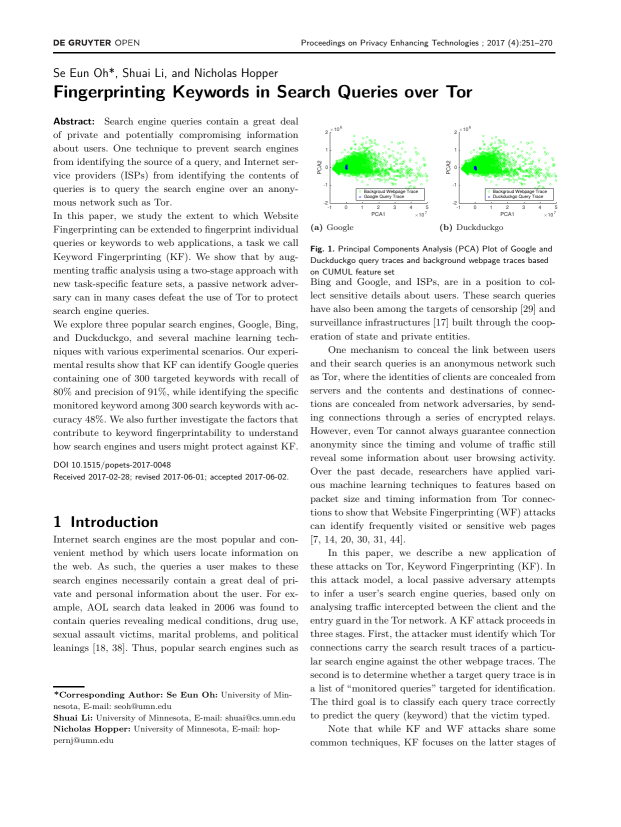Fingerprinting Keywords in Search Queries over Tor
Authors: Se Eun Oh (University of Minnesota), Shuai Li (University of Minnesota), Nicholas Hopper (University of Minnesota)
Volume: 2017
Issue: 4
Pages: 251–270
DOI: https://doi.org/10.1515/popets-2017-0048
Abstract: Search engine queries contain a great deal of private and potentially compromising information about users. One technique to prevent search engines from identifying the source of a query, and Internet service providers (ISPs) from identifying the contents of queries is to query the search engine over an anonymous network such as Tor. In this paper, we study the extent to which Website Fingerprinting can be extended to fingerprint individual queries or keywords to web applications, a task we call Keyword Fingerprinting (KF). We show that by augmenting traffic analysis using a two-stage approach with new task-specific feature sets, a passive network adversary can in many cases defeat the use of Tor to protect search engine queries. We explore three popular search engines, Google, Bing, and Duckduckgo, and several machine learning techniques with various experimental scenarios. Our experimental results show that KF can identify Google queries containing one of 300 targeted keywords with recall of 80% and precision of 91%, while identifying the specific monitored keyword among 300 search keywords with accuracy 48%. We also further investigate the factors that contribute to keyword fingerprintability to understand how search engines and users might protect against KF.
Copyright in PoPETs articles are held by their authors. This article is published under a Creative Commons Attribution-NonCommercial-NoDerivs 3.0 license.

